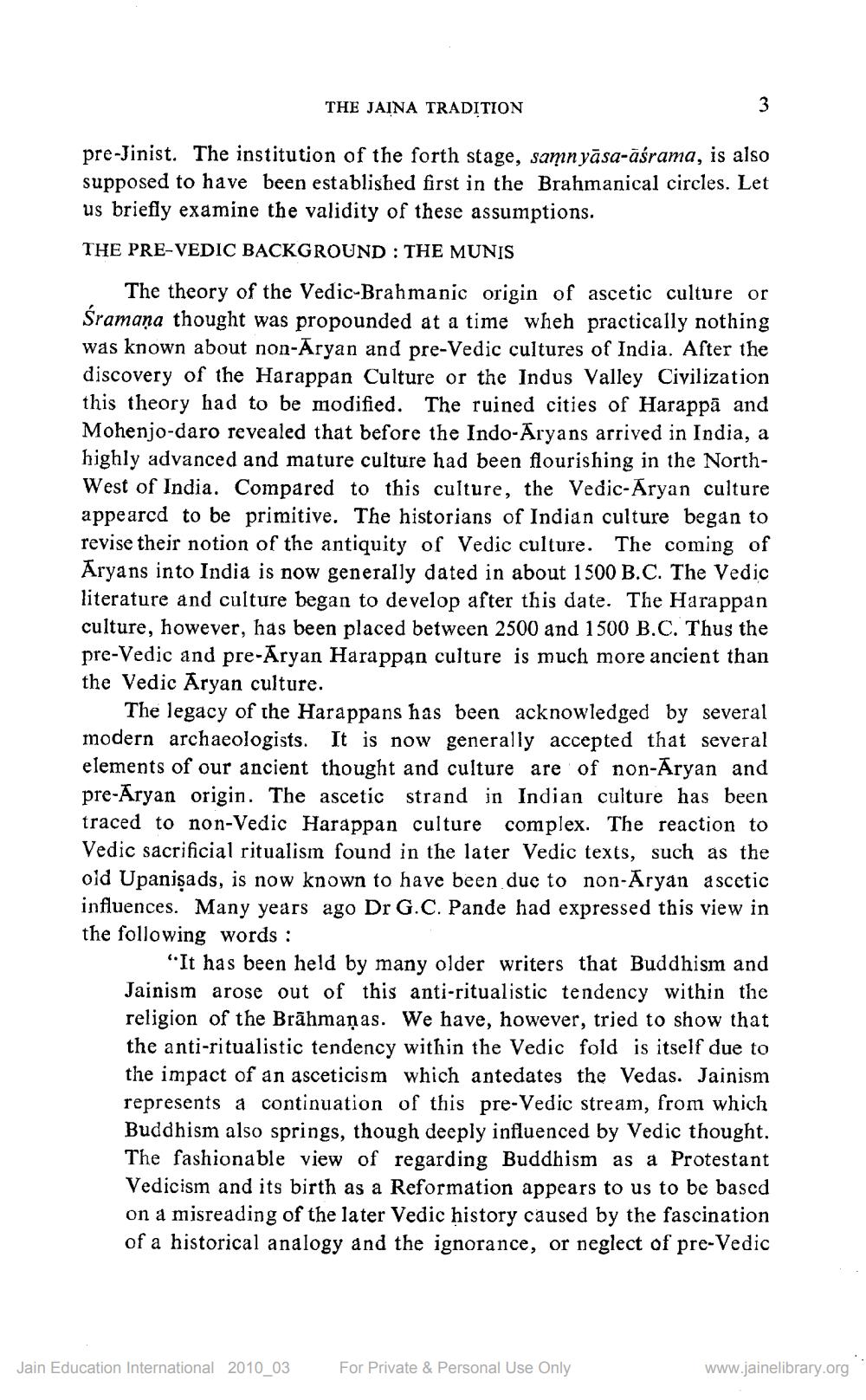________________
THE JAINA TRADITION
pre-Jinist. The institution of the forth stage, samn yāsa-āśrama, is also supposed to have been established first in the Brahmanical circles. Let us briefly examine the validity of these assumptions.
THE PRE-VEDIC BACKGROUND : THE MUNIS
The theory of the Vedic-Brahmanic origin of ascetic culture or Sramaņa thought was propounded at a time wheh practically nothing was known about non-Aryan and pre-Vedic cultures of India. After the discovery of the Harappan Culture or the Indus Valley Civilization this theory had to be modified. The ruined cities of Harappa and Mohenjo-daro revealed that before the Indo-Aryans arrived in India, a highly advanced and mature culture had been flourishing in the NorthWest of India. Compared to this culture, the Vedic-Aryan culture appeared to be primitive. The historians of Indian culture began to revise their notion of the antiquity of Vedic culture. The coming of Aryans into India is now generally dated in about 1500 B.C. The Vedic literature and culture began to develop after this date. The Harappan culture, however, has been placed between 2500 and 1500 B.C. Thus the pre-Vedic and pre-Aryan Harappan culture is much more ancient than the Vedic Aryan culture.
The legacy of the Harappans has been acknowledged by several modern archaeologists. It is now generally accepted that several elements of our ancient thought and culture are of non-Aryan and pre-Aryan origin. The ascetic strand in Indian culture has been traced to non-Vedic Harappan culture complex. The reaction to Vedic sacrificial ritualism found in the later Vedic texts, such as the oid Upanişads, is now known to have been due to non-Aryan ascetic influences. Many years ago Dr G.C. Pande had expressed this view in the following words:
"It has been held by many older writers that Buddhism and Jainism arose out of this anti-ritualistic tendency within the religion of the Brāhmaṇas. We have, however, tried to show that the anti-ritualistic tendency within the Vedic fold is itself due to the impact of an asceticism which antedates the Vedas. Jainism represents a continuation of this pre-Vedic stream, from which Buddhism also springs, though deeply influenced by Vedic thought. The fashionable view of regarding Buddhism as a Protestant Vedicism and its birth as a Reformation appears to us to be based on a misreading of the later Vedic history caused by the fascination of a historical analogy and the ignorance, or neglect of pre-Vedic
Jain Education International 2010_03
For Private & Personal Use Only
www.jainelibrary.org




